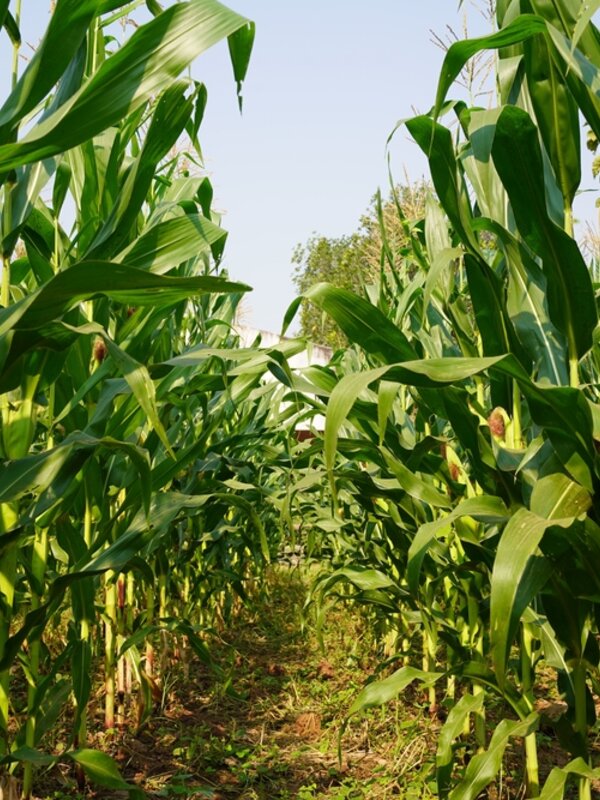Reducing mycotoxin content in winter cereals
After the harvest is before MK Soil.
MK Soil helps to reduce the mycotoxin content of winter cereals by up to 50.4 per cent. In combination with the use of fungicide, the product reduces the mould content by up to 78.4 per cent.
In the autumn, mould forms on crop residues such as maize and cereal straw. This can have a hugely negative impact on the quality of future crops.
One interesting detail is that the way in which crop residues are treated (mulching, ploughing) has an effect on the growth of mould.
A three-year trial by the crop production department of the Upper Austria Chamber of Agriculture under the leadership of Hubert Köppl investigated the use of fungicides, alternative products for the decomposition of straw and different soil processing methods.

The study
The researchers studied two preparations that promote straw decomposition and fungicides to reduce the mycotoxin content of winter wheat. In this case, the previous crop was maize. In addition, they evaluated the differences in the mycotoxin (DON) content between mulch sowing and ploughing. In comparison to an untreated control, this was reduced in all the variants of the trial. The decomposition additives resulted in significant reductions in mycotoxins. The highest DON content was found in the mulch sowing process. The study also showed that ploughing produced a better yield.
V1: Untreated
V2: Fungicide use (0.6 l/ha Champion + 0.6 l/ha Diamant (ES 39) + 1 l/ha Input (ES 61-65)
Alternative 1: Bioaktiv 1 (on the spring herbicide date)
Alternative 2: Bioaktiv 2 (on the spring herbicide date, 500 g/ha to combat weeds and for wheat flowers)
MK Soil 1: EM active 1 (on the maize straw, 66 l/ha in the autumn)
MK Soil 2: EM active 2 (on the maize straw in the autumn and fungicide use on wheat leaves and flowers)
Results: Yield, DON content with soil processing using a cultivator or plough
Results
The use of MK Soil for decomposition management significantly reduced the mycotoxin content. In combination with fungicide use, there was an increase in yields, both in the plough (+11.4%) and the cultivator (+9.8%) variants.
The use of MK Soil for decomposition management significantly reduced the mycotoxin content. In combination with fungicide use, there was an increase in yields, both in the plough (+11.4%) and the cultivator (+9.8%) variants.
Do you have questions about the studies?
We will be happy to answer them!
